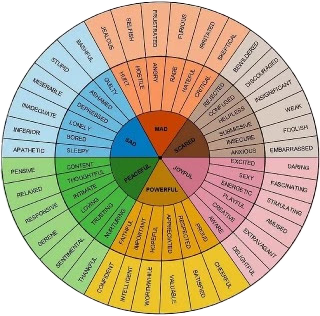Let’s set the tone. This song, themed around romantic love, has a lesson for all of us to conduct our daily lives with love and compassion:
It is said, blood is thicker than water. True, however, blood thins quickly with poor communication. It happens in all situations involving relationships. We all belong to one group that is particularly vulnerable to the pitfalls of poor communication. It is one rooted in our identity, emotion and character formation. It is our family.
This week, I will dissect the pitfalls of family communication through the following suggested steps:
- Stop
- Look & Reflect
- Listen
- Ask
- Forgive, maybe Forget… while moving forward.
You might be asking, “MC why do you think you are able to speak to this topic with confidence?”


In my case, although my relationship with my mother was painful, I am proud to say that regardless of the deep frustrations, anger and hurt from both our perspectives, my mom and I tried repeatedly to reset and communicate. We weren’t always successful. There were points in our life when we were closer than at others. Those moments were so sacred and precious. It was at these points we both managed to forge a better relationship changing our communication dance. My mother certainly taught me to persevere with love.
Where did the tension start with my mom? When I hit my teens. Although I was a pretty compliant teen, who achieved good grades and was a leader at high school, I was very strong-willed. The major tension began when I started bringing home boyfriends and wanted to date. I was confident and wanted independence. My mom was fearful. We had major yelling episodes. Some compromises were made, but we experienced an undercurrent of building tension.
The next major period of tension was when I chose to go to Carleton University in Ottawa rather than McGill in Montreal, after being accepted to both. My mom interpreted this as a rejection of home. I wasn’t rejecting home but rather searching for adventure and independence. She was afraid. I was ready to spread my wings. As a result, my mom rarely called me and, when I returned home, our communication was stilted.
The tense undercurrent continued to build when I met and married my husband, Mark, in Toronto (shattering my mom’s dreams of me walking down the staircase in my parents’ Beaconsfield home), had children, raised them according to my own ideas, and juggled my role as a working mom. Our communication difficulties escalated as I raised my sons.
Bottom line: why did we struggle? If fully dissected there were many components but simplified, we were both wanting to be heard and understood. We both perceived the world from different places and with different filters. We were cemented in our own patterns, conscious and subconscious, which were being driven by our egos. Furthermore, our repeated dance of dysfunctional communication bred anger and negativity. I suppose that was and is pretty much typical of the dynamic in many families.
What did we do? Despite our arguments (believe me, some were explosive), we kept the door open to communicating. Even when either of us stepped back for short periods, we never stopped reaching out entirely. BUT, we did stop to breathe and reflect, albeit sometimes worrying at our wounds and seething in anger.


How do you stop when in the midst of anger? Remember you can’t control the other person’s behaviour, only your own. Recognize your own body reactions and work to stay in a state of mindfulness.
Identify:
- when your heart rate starts to rise and your breathing speeds up.
- when you can feel your hands sweat and ball up.
- when you are clenching your teeth.
- when you are folding your arms.
- when you are looking away, refusing to make eye contact.
All these physical reactions are the quickest and most direct way your body is telling you a situation is escalating. If it continues the momentum of anger might invite a flash fire. Know thyself and be preemptive. It’s better to step back, even away, before things get out of control.
My analogy is that my mom and I fought like a cat and dog to the edge of a cliff. We fought with insane vigour on the edge, but before we tumbled over into the abyss, we stopped. Instinctively we knew that in order to survive as individuals and in our relationship, we had to stop. My suggestion, to all families struggling to communicate: take the first step, stop and take a break! Don’t go over the edge!
The next step is to look within and reflect…. Stay tuned for tomorrow’s blog.
Quick Take Away Links
This is a great post to remind us to step back:
- https://www.oprah.com/relationships/before-your-next-fight-read-this/all
- https://www.gottman.com/blog/love-smarter-learning-take-break/
For mothers and daughters:








[…] Who do we need to look at after stopping mid-conflict? Ourselves! Prev Post […]